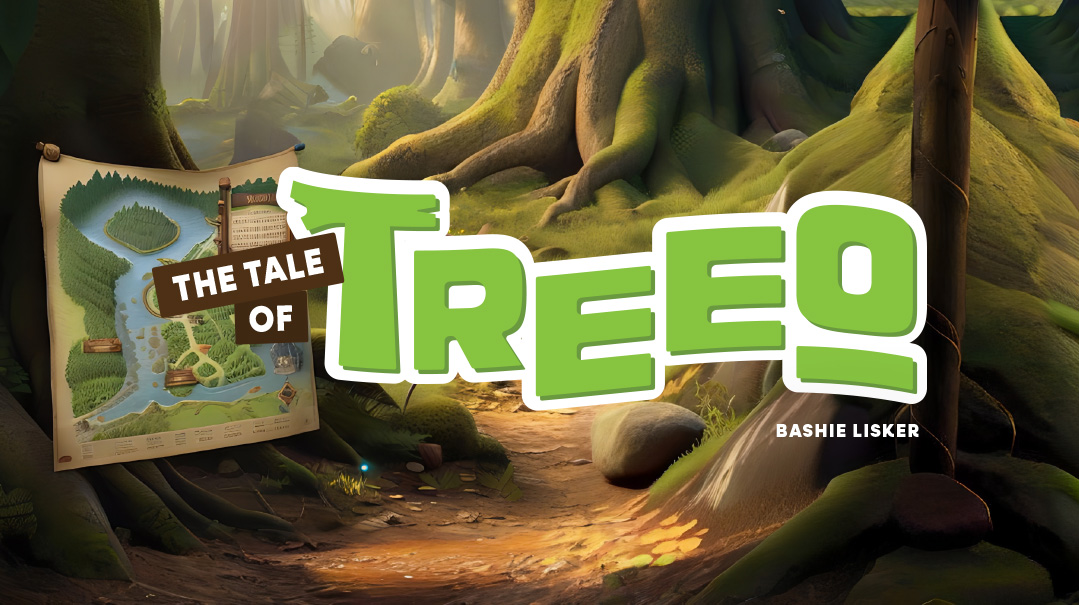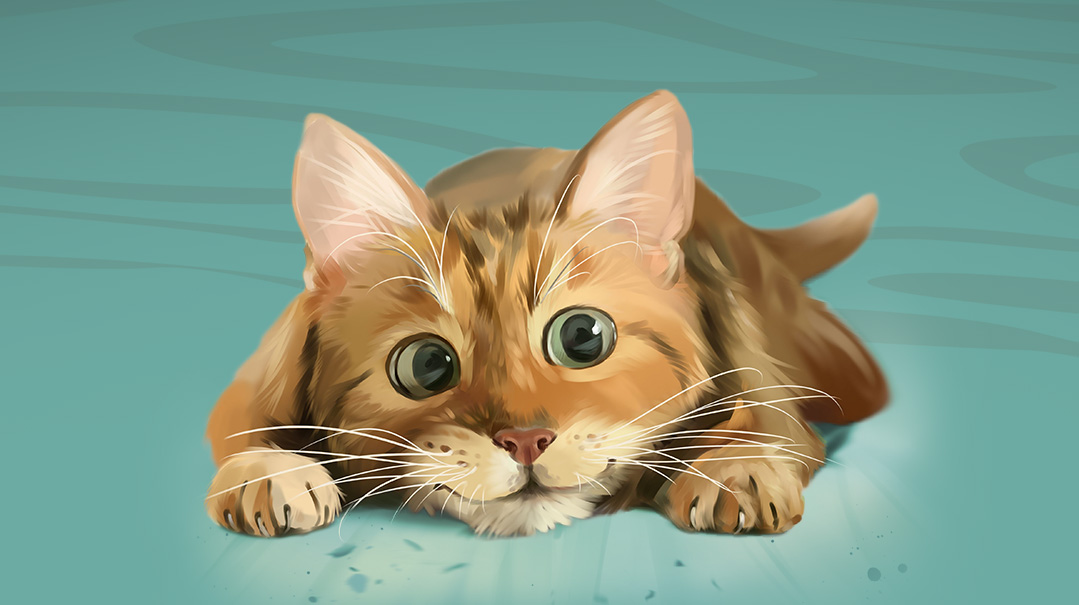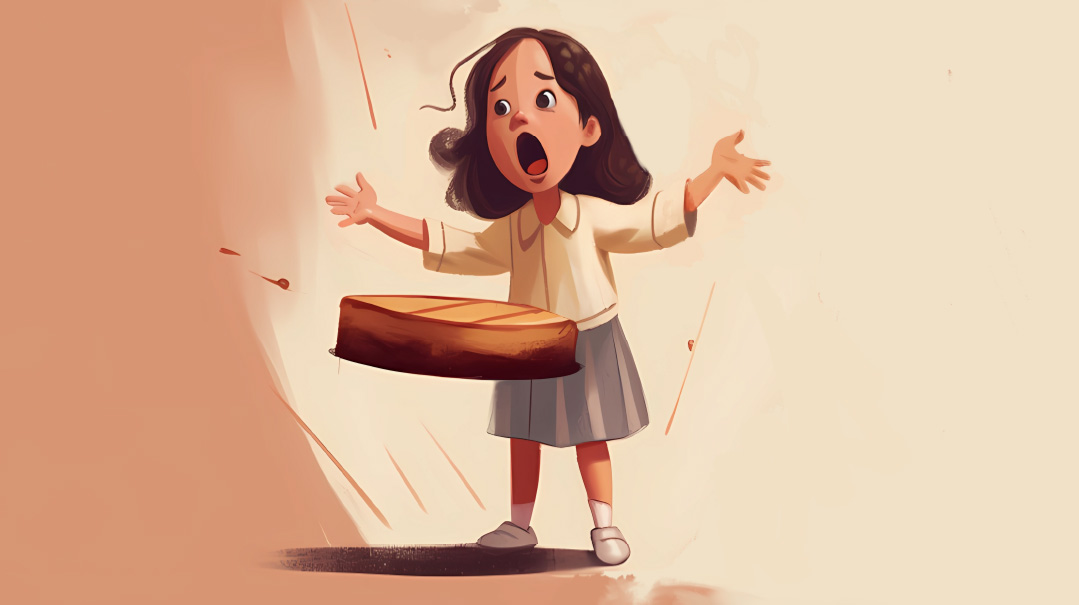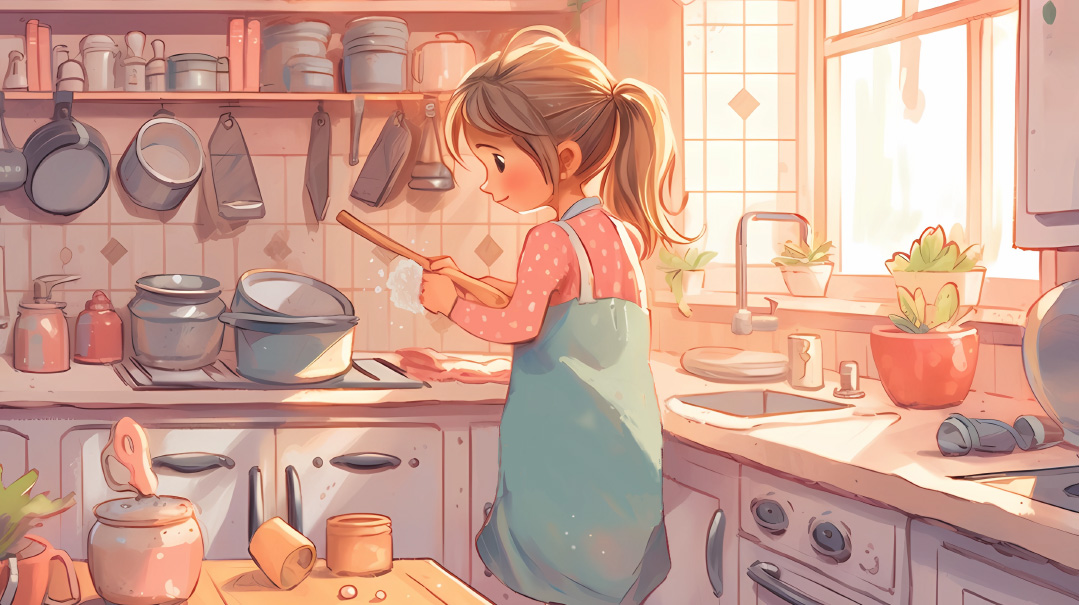The Storytellers: Part 5

Margalit looks into her cousin’s eyes. “You say that like you think I’m weird. I’m telling you, I just saw the tiger and—”

When Margalit finishes, Smadar looks at her, shocked and admiring. “Margalit.” She pauses. “That was a-mazing. Where did you come up with that story? How could you think of such a thing on the spot? Do you know Itali—”
Margalit cuts her off. “I don’t know! I don’t know! I just… I just saw the tiger in Abuelita’s box, and it seemed to speak to me. I saw it, and I remembered the story. I dreamed it last night.” As if that explained anything.
The two girls lean in toward the box, looking carefully, suspiciously, at the other objects that lie inside.
“Well,” Smadar finally says, “do any of these other things ‘speak’ to you?”
Margalit looks into her cousin’s eyes. “You say that like you think I’m weird. I’m telling you, I just saw the tiger and—”
“You’ve always been good at telling stories, though,” Smadar argues.
Margalit shakes her head. “Not like this…. This is… this is something else. Something unnatural.”
“Well, go on,” Smadar says, motioning to a bluish stone. “Prove it.”
Taking the cool stone in her hand, Margalit rubs it between her thumb and forefinger. It’s soft, perfectly smooth, like it’s been rubbed by hundreds of hands before hers. She wraps her fingers around it, gripping it in her fist. And then she begins to speak.
River Stones
There’s Penina, standing just inside the doorway, a curtain hanging between here and there. Penina looks around the room, searching, searching. There must be something she can take. Something that will help her remember.
She is leaving tonight. Her mother does not stop crying. Her father bends to his work, but see how his eyes glisten? It’s for the best, she will go on the youth aliyah, to the Holy Land. But she is young and will have only her older brother to watch over her.
The rugs and tapestries are too big, too heavy, too much a part of the home. The earthen jug, too breakable. There! Her eyes alight on a pile of pebbles sitting on the shelf. River stones from the River Draa. To anyone else, they are worthless ( Kugelach). To Penina, they are everything: a childhood of playing chamesh avanim, family trips to the water, Morocco, home. She selects five and places them in a small cloth bag.
Penina does not know that at the border, corrupt officials will think her river stones must be unpolished gems. She does not know someone will take them, slipping them out of the cloth bag and into their pocket. She does not know that years later, she will still remember the stones and, ultimately, what really matters: the childhood, the games, the trips, her family. They could take the stones, but they could never take the memories.
The two girls look at each other, eyes shining. Smadar shivers, Margalit nods.
“I think there’s something going on here,” Smadar says.
“I think so, too,” Margalit agrees.
“But what?” Smadar asks.
“And why?” Margalit says, knowing there is no answer. Yet.
“Do you think Abuelita knew about this?” Smadar asks.
Margalit just nods, swallows. “Okay, cousin,” she says, her voice just above a whisper. “Your turn.”
Smadar looks in the box, at the strange collection of assorted objects — the glass tiger, the river stone, a thimble, a drawer pull, a little silver thingie, a pearl, a pencil, a ring. “Is that a date pit?” She points and laughs nervously. “I’m not much of a storyteller…”
But she reaches in anyway. Instead of the date pit, Smadar chooses the strange silver thingie. It’s not a button, it’s not a tack. It’s like a stud that could be attached to a piece of clothing or maybe a belt. Smadar has barely held it up to the light to get a closer look when she begins talking.
Silver Stud
Children, I will tell you a story. Listen closely, listen carefully. Are you listening?
Do you see that table over there? Yes, that’s the one. Notice how it’s worn and scratched? That’s from many years of rolling dough, chopping vegetables, doing the thousand and one jobs that run a house.
Now look under the table. Do you see the rug? Yes, the threadbare one, so worn you can no longer see the pattern. Do you know what’s beneath it, children? No, of course you don’t. You’ve never been here before. There’s a trapdoor.
Imagine pulling it open at the gap in the floorboards. You can squeeze through the hole, so can an adult.
Once upon a time, a happy family lived here. No, not in the hole under the trapdoor. In this little house. Later, after the Nazis came to town, only a widow lived here with her young daughter, all that remained of the happy family. One day, the widow heard scratching at her door. She opened it slowly, cautiously, afraid of what, of who she might find there.
It was a man, the gabbai of a great rebbe. “We need a place to hide for the night. Maybe two nights,” the gabbai said. “The Rebbe, his wife, and me. We offer no compensation, but it’s a very great mitzvah.”
Children, what do you think happened? Of course, the widow said yes. She hid them for two nights, moving aside the table and the rug to open the trapdoor and let them in. Then she sent some food down (from her own meager portion) and slid everything back into place.
She moved everything again the next morning and gave them more food.
Finally, the Rebbe was ready to leave. He gave the widow and her daughter a brachah. “I cannot pay,” he said. “But I will always remember your mitzvah, and it will be a great zechus for you in a time of need.” He then he twisted and pulled at a silver stud from the atarah of his tallis, pulling it free from among the rest. “This is not a kemeiya — your mitzvah is more powerful than my amulets — but keep this silver stud as a reminder of what you’ve done, of the power of a single mitzvah of a single Jew in these days. When you are reminded, you will have strength to go on.”
The woman and her daughter survived. A single mitzvah had a lot of power.
Margalit looks at Smadar. Smadar looks at Margalit.
“Something is definitely going on here,” Margalit says.
“That’s an understatement,” Smadar says. “I’ve never told a story like that in my life.”
Silence descends on the room.
The two girls stare at the box, at each other, back at the box.
“It’s like a magnet,” Smadar says.
“Like an undertow,” Margalit says.
“Like a whirlpool.”
“Like nothing we’ve ever experienced before.”
“I think we should close it,” Smadar says, swallowing. “Like, I mean, until we figure out what Abuelita wanted us to do with it, why she wanted us to know these stories.”
Margalit fingers her necklace, fiddling with the tiny silver starling pendant. “I don’t think we should close it,” she says, fixing her cousin with a strong, hard gaze. “Not yet. Not until we’ve discovered every last story this box has to tell.”
To be continued…
(Originally featured in Mishpacha Jr., Issue 943)
Oops! We could not locate your form.







